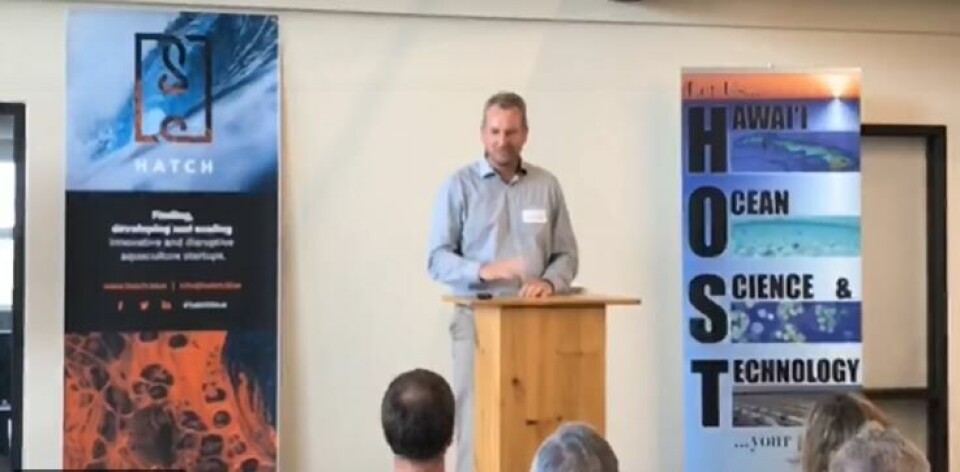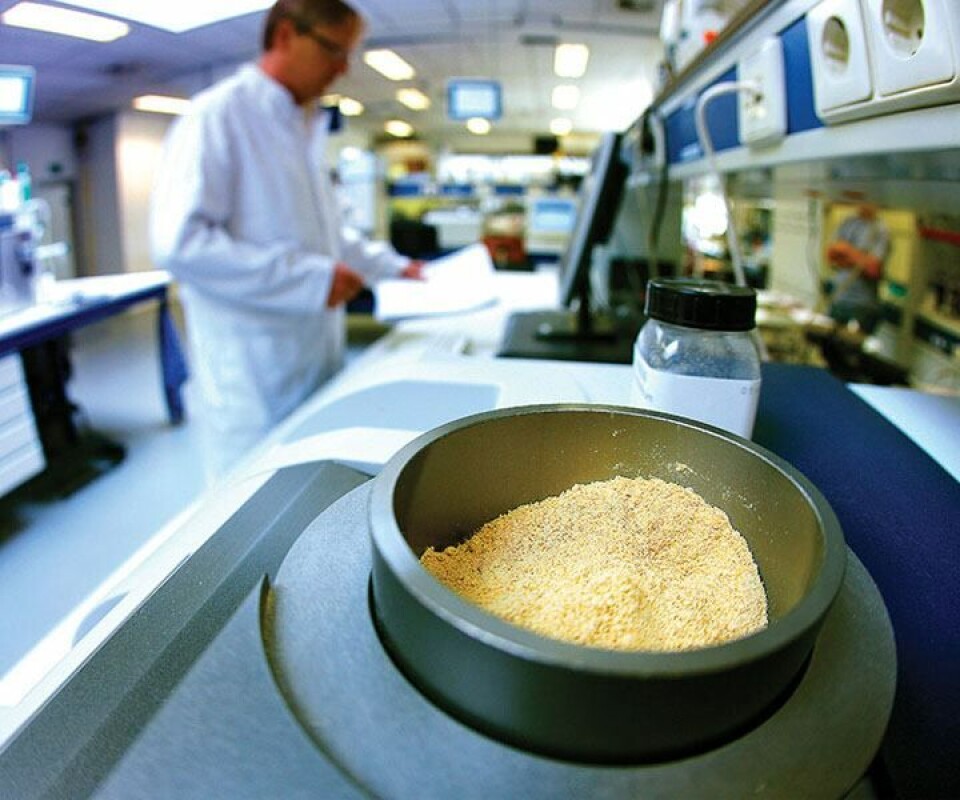
The sky’s no limit for aquaculture innovator
A company that offers easier access to space by using small satellites is among 13 start-ups taking part in the third mentoring programme run by aquaculture accelerator firm Hatch.
Bergen-based Dynaspace provides an algal bloom detection and warning system, predicting and forecasting algal blooms by using state-of-the-art satellite remote sensing, in-situ measurements, and machine learning algorithms.
Other companies taking part in the 15-week programme in Hawaii include Ireland-based Univiv, which is culturing a particular strain of archaea, a type of microorganism, as an aquaculture pond additive. Trials have shown the archaea to increase production and reduce inputs such as aeration needs.

Diagnostic assay
Another Irish company, Dublin-based Impact9, is developing new mechanical and structural solutions for offshore applications, mainly focused on novel mooring and anchoring solutions for offshore fish containers.
University of Arizona start-up GenetiRate uses its proprietary diagnostic assay to test various aquatic eggs, embryos, hatchlings and tissues to select aquatic species with greater growth potential and feed efficiency. The company was represented at the launch of the accelerator by Jason Cleaversmith, former general manager of AKVA group Scotland and a former employee of the Scottish Aquaculture Innovation Centre.
Montana Microbial is creating an enzymatic treatment for barley that produces a high-value protein concentrate for use in aquaculture feed, and Nitrogen Sensing Solutions is developing a smart multiparametric sensor for water analysis measuring simultaneously three nitrogen compounds - ammonium, nitrite and nitrate - accurately and in real-time.
Methane reduction
Student-led start-up Symbrosia is developing efficient growing methodology for seaweed for the purpose of methane reduction in ruminant animals.
The company’s patent-pending system consists of a tank for growing that algae, a tank for growing shrimp, and chambers that move waste and water back and forth. When waste from the shrimp moves to the algae tank it acts as fertiliser, and as the algae absorb nutrients from the water it produces clean, oxygenated water for the shrimp.
Symbrosia was named joint winner of the MIT (Massachusetts Institute of Technology) Water Innovation Prize for its system in April.

Microalgae
Hawaii-based Kuehnle AgroSystems, Inc uses microalgae and other organisms to develop specialty chemicals and raw materials, such as the salmon colourant astaxanthin.
Baltimore-based Gaskiya has developed low cost, paper-based, diagnostic test kits, currently focused on streptococcus for a target species of tilapia.
Argentine company FeedVax develops a platform of oral vaccines intended to reduce the use of antibiotics, eliminate fish stress and simplify the farmer’s life, specifically for Streptococcosis in tilapia.
Canadian company Kinnva uses a methane fermentation technology and intensified processing to produce high-value biochemicals and biomaterials for feed and food applications, while Thailand company Algaeba produces microalgae concentrate for the shrimp industry.
Industry players
The final member of the cohort is Catchatrade, an integrated B2B online seafood marketplace that plans to target the top four aquaculture producing countries: China, Indonesia, India, and Vietnam.
Hatch has held two previous aquaculture accelerators, in Bergen and in Cork, Ireland. The current programme is starting this week at the National Energy Laboratory (NELHA) of Hawaii in the Hawaii Ocean Science and Technology park (HOST).
After a month there, the cohort will visit the Hatch offices in Bergen, as well as Singapore afterwards to connect with key industry players and cover all aspects of the global aquaculture industry.
Salmon farming software provider Manolin, a graduate of the Hatch accelerator in Cork, shared the Most Promising New Entrant category prize at the Aquaculture Awards 2019 in Edinburgh earlier this year.























































